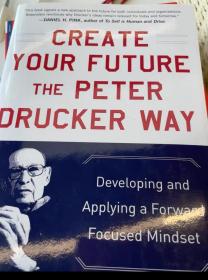
现货Future-Focused History Teaching: Restoring the Power of Historical Learning[9781732120105]
¥ 165 九五品
库存2件
作者Maxwell, Mike
出版社Maxwell Learning LLC
ISBN9781732120105
出版时间2018-07
装帧平装
纸张其他
页数256页
正文语种英语
上书时间2024-03-27
- 最新上架
商品详情
- 品相描述:九五品
- 商品描述
- HISTORY EDUCATION IS IN DECLINE because it fails to provide knowledge useful in the future. It's up to history teachers to save history schooling.History education is fundamentally different from other school subjects in that it doesn't identify general principles derived from its subject matter principles that describe how the world works that can be applied in the future,such as addition and subtraction in mathematics, spelling and grammar in language, and photosynthesis and gravity in science.Experts in disciplines other than history are dedicated to identifying general principles of knowledge, which they pass on to teachers, who pass on this knowledge to future generations. Historians, on the other hand, are dedicated to describing events of the past. With rare exceptions, they do not identify principles of knowledge that can be applied in the future. So general principles are not part of the official history curriculum taught in schools, and teachers are left without general principles to pass on to their students. Teachers are reduced to recounting isolated events of the past.Educators commonly try to compensate for history's lack of subject-matter knowledge useful in the future by emphasizing skills knowledge instead: critical thinking skills or the job skills of professional historians. Other school subjects also have their critical thinking skills and professional practices, but in these other disciplines general principles constitute the foundation of learning because knowledge of how the world works is a necessary prerequisite to critical thinking. In history education that necessary prerequisite is missing.Education exists to impart knowledge useful in the future. Without principles of knowledge applicable to the future, history is unable to fulfill the purpose of education the way other school subjects do. Without principles applicable to the future, society has no practical means to learn from the past, and the cycle of historical ignorance can perpetuate indefinitely. As Santayana said, "Those who cannot remember the past are condemned to repeat it."If historians wish to concentrate on the role of describing events of the past, that's their business. Then the task of providing knowledge useful in the future falls to history educators, because that'stheirbusiness.It's time that history educators took charge of history education.Former journalist and history teacherMike Maxwell embarked on a seven-year journey to discover how history education could be made more useful to students andsociety. The result of his investigation isfuture-focused history, the logical idea that knowledge from the past can inform judgment in the future.FUNDAMENTALS OFFUTURE-FOCUSED HISTORY TEACHINGINCLUDEFive basic principles of history education,A coherent and useful purpose to guide instruction,Four kinds of historical knowledge relevant to the future,Criteria for weighing the importance of historical events,Four essential cognitive learning strategies.Maxwell believes thatFuture-Focused History Teachinghas the potential to restore to historical learning the power that it once held but has since lost; to return history to its rightful place of prominence among the fundamental realms of knowledge taught in school and college; and to provide important knowledge of how the world works that can help students and society to function effectively in the future.
相关推荐
-
![现货Future Focused Leaders: Relate, Innovate, and Invigorate for Real Educational Change[9781506376035]](https://www0.kfzimg.com/sw/kfz-cos/kfzimg/17733071/271a0d33d9cfba28_s.jpg)
现货Future Focused Leaders: Relate, Innovate, and Invigorate for Real Educational Change[9781506376035]
九五品上海
¥ 287.00
-

Total Leaders:applying the best future-focused Change Strategies to Education
九品广州
¥ 90.00
-
![现货 Emotion-Focused Cognitive Therapy[9780470683231]](https://www0.kfzimg.com/sw/kfz-cos/kfzimg/17733071/0e0e4811d1a9e2c6_s.jpg)
现货 Emotion-Focused Cognitive Therapy[9780470683231]
九五品上海
¥ 1309.00
-

scenario focused engineering(现货)
九品上海
¥ 350.00
-

Create Your Future the Peter Drucker Way: Developing and Applying a Forward-Focused Mindset
九品厦门
¥ 250.00
-

Create Your Future the Peter Drucker Way: Developing and Applying a Forward-Focused Mindset
八五品厦门
¥ 188.00
-
![现货Problem-Focused Reproductive Endocrinology and Infertility (2023)[9783031194429]](https://www0.kfzimg.com/sw/kfz-cos/kfzimg/17733071/79f5564fca8f05d6_s.jpg)
现货Problem-Focused Reproductive Endocrinology and Infertility (2023)[9783031194429]
九五品上海
¥ 1258.00
-

THE STRATEGY-FOCUSED ORGANIZATION
九品北京
¥ 88.00
-

THE STRATEGY-FOCUSED ORGANIZATION
八品怀化
¥ 100.00
-

THE STRATEGY-FOCUSED ORGANIZATION
九品常德
¥ 80.00
— 没有更多了 —
![现货Future-Focused History Teaching: Restoring the Power of Historical Learning[9781732120105]](https://www0.kfzimg.com/sw/kfz-cos/kfzimg/17733071/b0e6f6f5833e706f_b.jpg)

![现货Materials and Technologies of Modern Production[9783036401683]](https://www0.kfzimg.com/sw/kfz-cos/kfzimg/17733071/5fd2824531e165d7_s.jpg)
![现货Introduction to Container Ship Operations and Onboard Safety[9781032155425]](https://www0.kfzimg.com/sw/kfz-cos/kfzimg/17733071/58b7ff43ef7909ee_s.jpg)
![现货Electrophosphorescent Materials and Devices[9789814877343]](https://www0.kfzimg.com/sw/kfz-cos/kfzimg/17733071/18cc1d77bcb7b488_s.jpg)
![现货Organic Semiconductors for Optoelectronics[9781119146100]](https://www0.kfzimg.com/sw/kfz-cos/kfzimg/17733071/24c85a750c708964_s.jpg)
![现货Advances in Food Rheology and Its Applications[9780081004319]](https://www0.kfzimg.com/sw/kfz-cos/kfzimg/17733071/e0c11603c9119d4d_s.jpg)
![现货Advanced Materials and Sustainable Technologies[9783035727562]](https://www0.kfzimg.com/sw/kfz-cos/kfzimg/17733071/dced675333874c48_s.jpg)
![现货Advanced Materials and Manufacturing Engineering II[9783035712681]](https://www0.kfzimg.com/sw/kfz-cos/kfzimg/17733071/660ccfae75fa8d3e_s.jpg)
![现货Materials in Machinery and Construction[9783035718119]](https://www0.kfzimg.com/sw/kfz-cos/kfzimg/17733071/6f402060775e9daa_s.jpg)
![现货Cereal Grain Quality (Softcover Reprint of the Original 1st 1996)[9789401071772]](https://www0.kfzimg.com/sw/kfz-cos/kfzimg/17733071/f93ca1c96a97403a_s.jpg)
![现货Future-Focused History Teaching: Restoring the Power of Historical Learning[9781732120105]](/dist/img/error.jpg)
以下为对购买帮助不大的评价